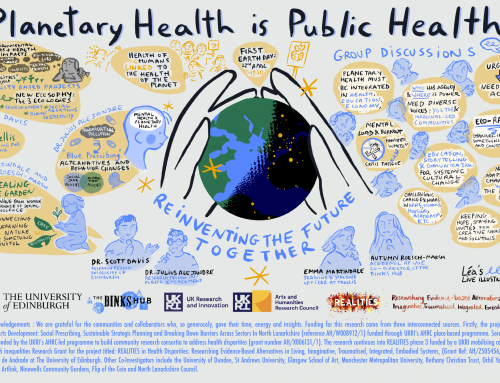By Alexandra Jundler
Amidst the reading, writing and researching that takes up much of my time as a research fellow for REALITIES, the administrative bureaucracy is pervasive in a way that always seems a bit surprising. Beyond emails and scheduling, the bureaucratic system of a university (or across institutions depending on the issue) is a particular puzzle to behold. One of the main purposes of REALITIES is to reimagine health and social systems to better address health inequalities across Scotland. Yet, a big part of reimagining this is navigating the various academic institutions and systems – which at some point perhaps likewise need to be reconceptualised. If we are striving to reimagine systems, then we need to acknowledge the other systems at play. At what point does the careful bureaucracy underpinning systems become more of a hindrance than a help? When one sends countless emails to address a seemingly simple matter with redirection in nearly every reply? If systems are presumed to be understood and not explicitly stated until a final exasperated hour, how can those newer to academic systems hope to learn to navigate them appropriately and efficiently? Must we be guided through by more senior academics to understand every process rather than have system(s) that can be simply explained and understood? But is that always possible in academic institutions and systems that are increasingly under pressure and expected to do more with less? This flurry of questions has been crossing my mind recently and I do not think there are specific answers to any of them but perhaps can linger as thoughts and nuisances to keep in the background as we strive to do our research and reimagining.
Previous research has considered university bureaucracy within the context of ‘new public management’, ‘wherein academicians are being subjected to a voluminous administration, thoroughly surveilling (and surveilled) by means of databases, but they are also obliged to deal with external bureaucracies in order to have their activities funded’ (Moutsios, 2023, p. 380). Perhaps one solution to navigating bureaucracy that can be frustrating and/or seemingly impenetrable is to take a step back to try to understand how academic systems co-exist alongside wider health and social systems and likewise how they are each influenced by the other. It seems that we cannot reimagine one set of systems without considering their intersection with the wider system(s) of academia. Likewise, perhaps we cannot pretend academic bureaucracy and (sometimes extremely frustrating) administrative tasks do not exist as they make up academia and the surrounding systems. However, perhaps there is a line between accepting bureaucracy and arguing for a system of academic bureaucracy that actually does what it is meant to.
References
Moutsios, S. (2023). The bureaucratisation of the university: The case of Denmark. Educational Philosophy and Theory, 55(3), 379-391.





